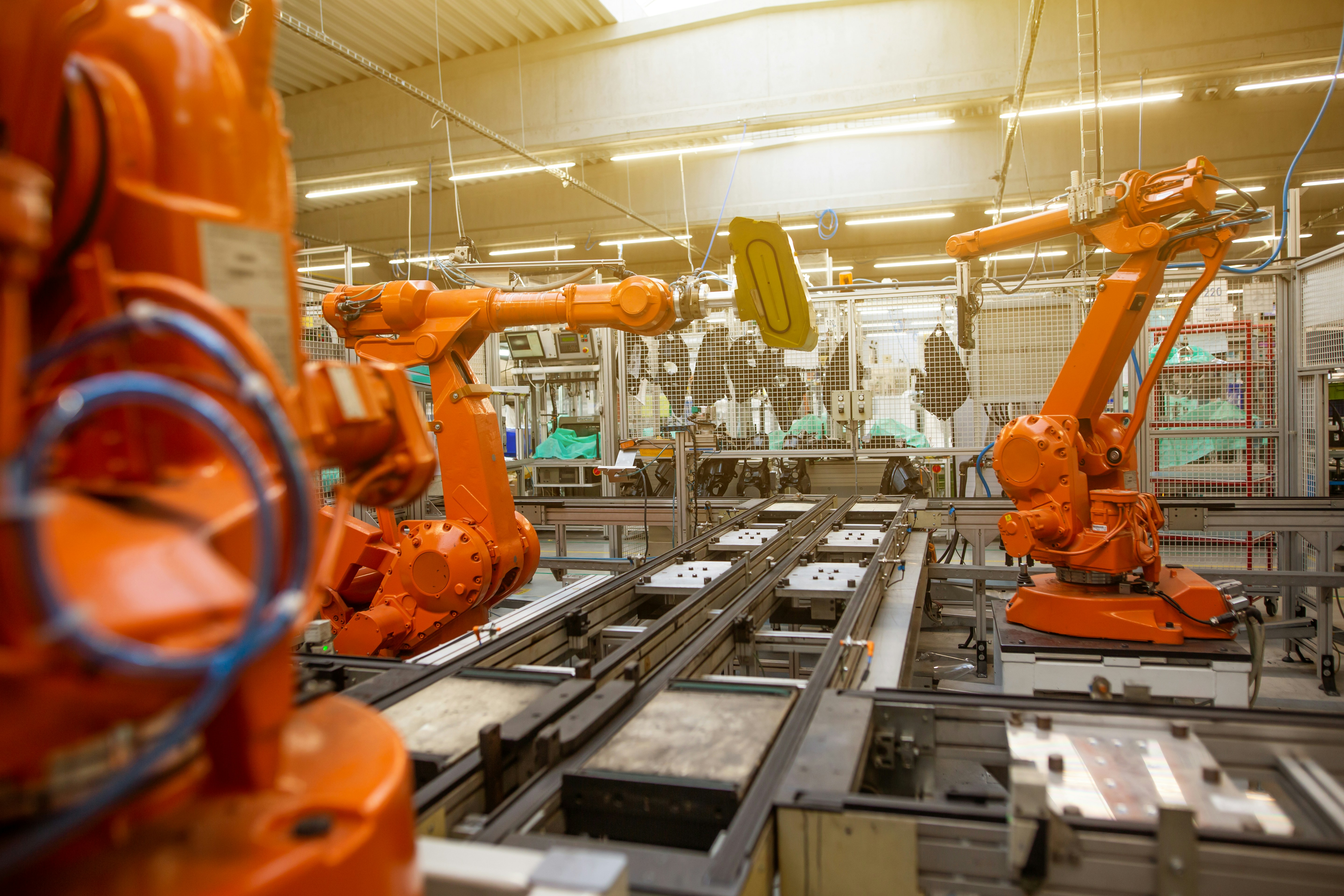Manufacturing Insights: Stay Updated with Trends, Technologies, and Best Practices
July 20, 2024 | by [email protected]
 Photo by Simon Kadula on Unsplash
Photo by Simon Kadula on Unsplash Emerging Trends in Manufacturing
The manufacturing industry is undergoing significant transformations, driven by the adoption of new technologies and methodologies. One of the most notable trends is the rise of smart factories. These highly automated and digitized facilities leverage the Internet of Things (IoT), artificial intelligence (AI), and machine learning to streamline operations, enhance productivity, and reduce downtime. For instance, companies like Siemens have implemented smart factory initiatives to optimize their production lines, resulting in significant cost savings and improved product quality.
Another major trend reshaping the industry is the adoption of Industry 4.0 principles. This fourth industrial revolution centers around the integration of cyber-physical systems, advanced analytics, and cloud computing. Industry 4.0 enables manufacturers to create more flexible and responsive production environments. For example, Bosch has embraced Industry 4.0 by utilizing digital twins and predictive maintenance, which allow for real-time monitoring and adjustments, thereby minimizing equipment failures and operational disruptions.
Sustainability has also become a crucial focus in modern manufacturing processes. As environmental concerns rise, manufacturers are increasingly prioritizing eco-friendly practices. This includes the use of renewable energy sources, recycling programs, and the development of sustainable materials. Companies like Tesla are leading the way by incorporating sustainable practices into their manufacturing operations, such as using solar power at their Gigafactories and recycling battery components, which significantly reduce their environmental footprint.
The impact of these emerging trends on manufacturing professionals is profound. Engineers and technicians are required to acquire new skills related to automation and data analysis. Business owners and supply chain managers must adapt to these changes by investing in advanced technologies and rethinking traditional workflows. A case in point is General Electric, which has successfully integrated digital tools and sustainable practices into their manufacturing processes, resulting in increased efficiency and cost reductions across their operations.
In conclusion, the rise of smart factories, the adoption of Industry 4.0, and the growing importance of sustainability are key trends that are revolutionizing the manufacturing industry. By embracing these changes, companies can enhance efficiency, reduce costs, and improve product quality, thereby staying competitive in an increasingly dynamic market.
Cutting-Edge Technologies Transforming Manufacturing
In recent years, the manufacturing sector has witnessed a significant transformation driven by cutting-edge technologies. Among these, additive manufacturing, artificial intelligence (AI), the Internet of Things (IoT), and robotics stand out as pivotal innovations reshaping the industry. These technologies are being integrated into manufacturing operations to streamline processes, enhance precision, and enable unprecedented levels of customization.
Additive manufacturing, commonly known as 3D printing, allows manufacturers to create complex components with high precision directly from digital models. This technology reduces material waste and shortens production cycles, providing a cost-effective solution for prototyping and small-batch production. For instance, aerospace companies are utilizing 3D printing to produce lightweight yet robust parts, significantly improving fuel efficiency and performance.
Artificial intelligence is another game-changer in the manufacturing landscape. AI-powered systems can analyze vast amounts of data to optimize production schedules, predict maintenance needs, and enhance quality control. By harnessing machine learning algorithms, manufacturers can identify patterns and anomalies that human operators might overlook, leading to improved operational efficiency and reduced downtime.
The Internet of Things (IoT) connects machines, sensors, and devices across the factory floor, enabling real-time data exchange and monitoring. This interconnected ecosystem facilitates predictive maintenance, where potential issues are identified and resolved before they cause disruptions. IoT also enhances supply chain visibility, allowing manufacturers to track inventory levels and production status with precision, thereby reducing lead times and improving customer satisfaction.
Robotics plays a crucial role in automating repetitive and labor-intensive tasks, thereby freeing up human workers for more strategic roles. Modern robots are equipped with advanced sensors and AI capabilities, enabling them to perform complex tasks with remarkable accuracy. For example, automotive manufacturers employ robotic arms for welding and assembly, ensuring consistent quality and high production rates.
Despite the numerous benefits, the adoption of these technologies comes with challenges. High initial investment costs, the need for skilled personnel, and cybersecurity concerns are some of the hurdles that manufacturers must overcome. To stay ahead of the curve, industry professionals should invest in continuous learning and collaboration, attend industry conferences, and keep abreast of emerging trends and best practices.
Real-world applications and success stories abound, demonstrating the practical impact of these innovations. Companies like General Electric and Siemens have successfully integrated AI and IoT into their manufacturing processes, resulting in significant cost savings and operational efficiencies. By embracing these advanced technologies, manufacturers can not only enhance their competitive edge but also drive the industry towards a more sustainable and efficient future.
RELATED POSTS
View all

